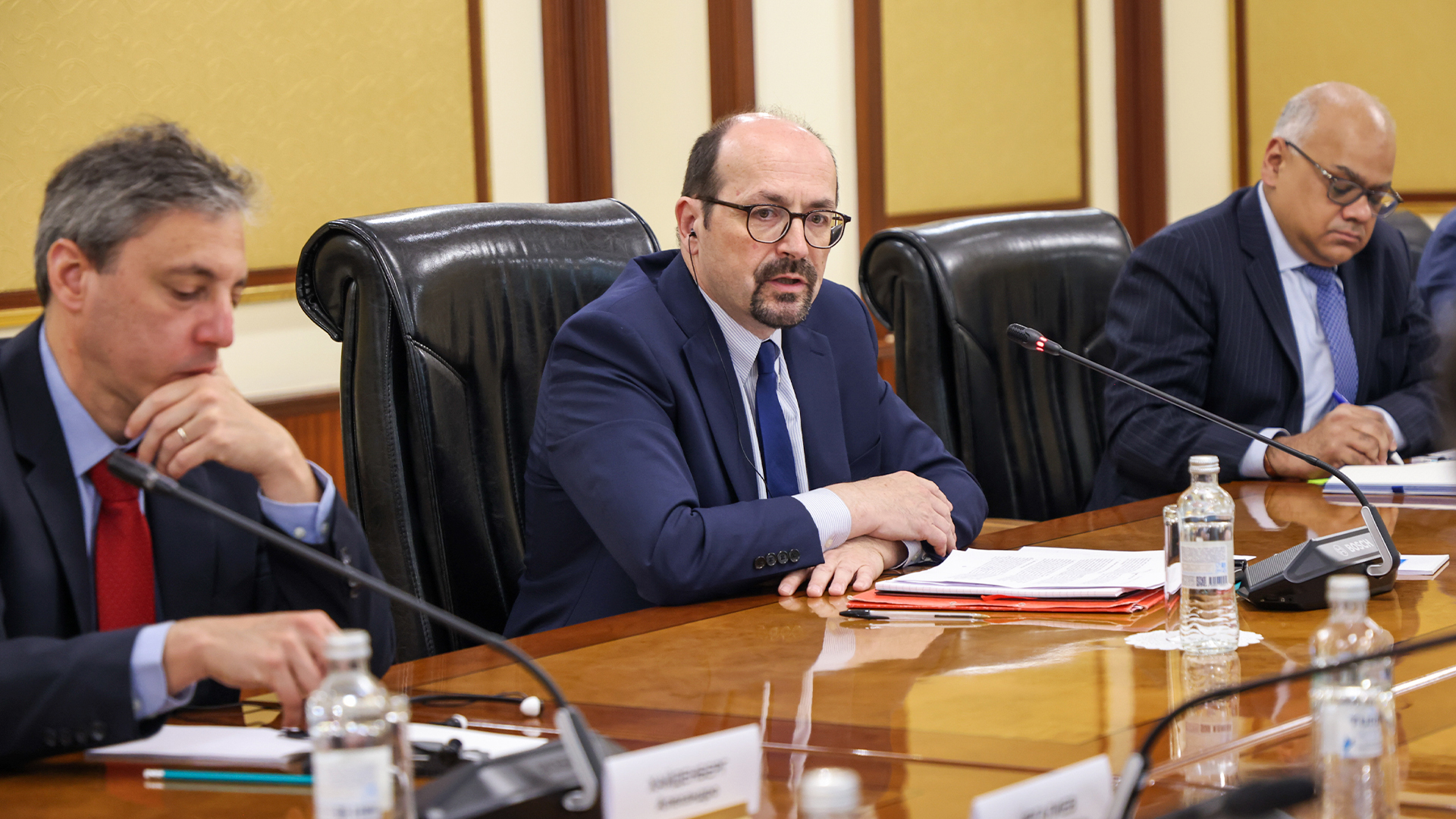ASTANA – Kazakhstan’s economy and financial sector have remained resilient, but downside risks to the outlook are substantial, the International Monetary Fund (IMF) Mission Chief for Kazakhstan, Nicolas Blancher, concluded in a statement following a visit to the country on May 23-31.

Nicolas Blancher. Photo credit: primeminister.kz
Economy and financial sector
Blancher wrote that Kazakhstan’s economy has remained resilient, with real GDP growing 5.1% in 2023 and inflation dropping to 8.7% in April, partly due to lower international food prices and prudent monetary policy.
Downside risks to the outlook still persist. In addition to external factors, domestic ones include the impact of the recent floods and inflation pressures that could fuel social tensions and delay reform implementation. Upside risks include higher oil prices and higher-than-expected foreign investment in new sectors.
Monetary policy
According to Blancher, monetary policy has been appropriately tight and should remain so until inflation approaches the 5% target.
On May 31, the National Bank of Kazakhstan (NBK) reduced the policy rate to 14.5%. However, further rate cuts are limited by strong domestic demand and potential future increases in energy and utility tariffs. The NBK’s commitment to inflation targeting is commendable and would be further strengthened by enhancing its institutional independence and the effectiveness of monetary transmission.
Blancher expects a tighter fiscal stance in 2024, necessitating reforms to enhance policy credibility.
“To preserve the soundness and resilience of Kazakhstan’s banking sector, the bank resolution framework and macroprudential policy capacity need to be strengthened. The mission welcomed recent progress in bolstering the independence of the Agency for the Regulation and Development of the Financial Market (ARDFM) and in strengthening consolidated supervision and the oversight of related party transactions, in line with the 2023 FSAP recommendations,” he said.
Structural and climate-related reforms
The IMF Mission Chief stressed that accelerating structural and climate-related reforms remains essential to boost future economic growth and diversification.
The recently adopted decree for economic liberalization sets crucial goals and steps to reduce the state’s role and increase economic competition.
Meeting Kazakhstan’s climate objectives and commitments will also require decisive efforts and incentives to promote green energy sources and decarbonization through continued energy tariff adjustments, improved functioning of the emissions trading system, and upgraded energy infrastructure.
The statement clarifies that the views expressed are those of the IMF staff and do not necessarily represent the views of the IMF’s Executive Board.
